By Christina Deardurff, with agency reports
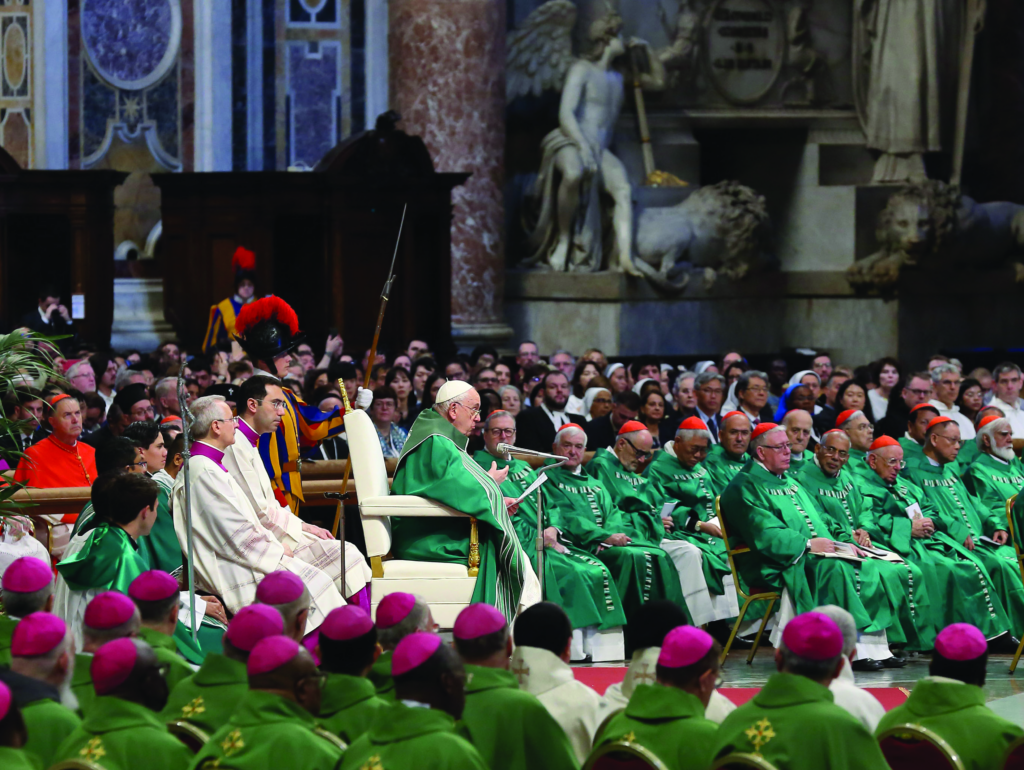
October 29, 2023, Vatican Basilica. Pope Francis presides over the Holy Mass for the conclusion of the Ordinary General Assembly of the Synod of Bishops (Photo: Grzegorz Galazka)
As the Vatican’s nearly monthlong Synod on Synodality drew to its October 29 conclusion, the 365 assembled cardinals, bishops, priests, sisters, religious and lay people — and of course, Pope Francis — voted to approve a 42-page report which was published in Italian the day before the Synod’s final closing.
The report was short on concrete proposals, and long on exhortations to continue the path of establishing synodality as the modus operandi of the Catholic Church in virtually all its aspects.
A definition of synodality, a term which, due to its novelty, has been open to a wide array of interpretations, was offered in the report: “Synodality can be understood as the walk of Christians with Christ and toward the kingdom, together with all humanity; mission-oriented, it involves coming together in assembly at the different ecclesial levels of life, listening to one another, dialogue, communal discernment, consensus-building as an expression of Christ’s making himself present alive in the Spirit, and decision-making in differentiated co-responsibility.”
The term “consensus” which appeared in the report’s definition of synodality was echoed by the Synod of Bishops’ secretary-general, Maltese Cardinal Mario Grech, who said, “Ecclesial discernment, which is based on mutual listening to understand where the spirit is leading the Church, is based on the criterion of consensus.”
The document, in fact, went so far as to say that “synodal processes” can actually verify when the faithful are in consensus (the “sensus fidelium”) on a given issue, which “is a sure criterion for determining whether a particular doctrine or practice belongs to the apostolic faith.”
Thus was laid the groundwork for a discernment of new attitudes, procedures, even, perhaps, teachings, resulting from discussion and “listening” to the People of God in all walks of life, not just the clergy, and a consequent “consensus” on what the will of God is for the the Church of the 21st century.
The work of construction upon this foundation, however, was mostly deferred until the second phase of the Synod on Synodality, to be held a year from now, in October, 2024.
The report instead calls for “further study,” as well as the establishment of commissions of theologians and canonists; however, nowhere in the document is it specified how these new “commissions” would be composed, who would choose the members, or how or when they would meet.
One thing the report does call for is the establishment of a “special intercontinental commission of theologians and canonists” to examine the definition and conceptual understanding of the “idea and practice of synodality” and its canonical implications.
The proposals also include the formation of “a joint commission of Eastern and Latin theologians, historians, and canonists to study the issues that require further study and make proposals for pursuing the path.”
In addition to these commissions, the document also defines the 75 different items listed as “matters of consideration” in the synthesis report as “points on which we have recognized that it is necessary to continue theological, pastoral, and canonical deepening.”
Among these “matters of consideration,” which could not find a consensus in the first synod assembly, are women’s access to diaconal ministry, priestly celibacy, “Eucharistic hospitality” for interfaith couples, ways to make the sacrament of confirmation “more fruitful,” and assigning the handling of abuse cases to another body instead of the bishops.
After 25 days of “walking together” in October 2023, where will the synod members go from here?
A particularly notable absence
With regard to the role of women, the final report issued an “urgent” call for Canon Law to be changed to allow more female governance roles: “There is an urgent need to ensure that women can participate in decision-making processes and assume roles of responsibility in pastoral care and ministry. The Holy Father has significantly increased the number of women in positions of responsibility in the Roman Curia. The same should happen at other levels of Church life. Canon law should be adapted accordingly.” (Passed by 319 to 27)
The current Vatican concentration on climate change issues was also represented, with a call being made for “the biblical and theological foundations of integral ecology [to] be more explicitly and carefully integrated into the teaching, liturgy and practices of the Church.” (Passed by 328 to 16)
On the issue of migration, the final report highlighted calls for “respect for the liturgical traditions and religious practices of migrants” as part of an “authentic welcome,” while avoiding urging the promotion of Catholicism. In a paragraph with a relatively large amount of objection, mention was made of “sensitivity” needed in places where “the proclamation of the Gospel has been associated with colonization and even genocide.” (Passed by 312 to 32)
So also was the Holy Eucharist seen and used as an aid for “synodality,” with calls made for Communion to be given to non-Catholics. So-called “Eucharistic hospitality” was highlighted as being an issue “particularly felt by interfaith couples.”
The final report said the issue of Eucharistic hospitality (communicatio in sacris) should be further examined from the theological, canonical and pastoral perspectives in light of the link between sacramental and ecclesial communion. This issue is particularly felt by interfaith couples. It also points to a broader reflection on mixed marriages. (Passed by 321 to 23)
The terminology “LGBTQ” did not appear in the final report, unlike in the Instrumentum Laboris which guided proceedings. This is a particularly notable absence, especially given the concentration of questions on the topic of homosexuality during the near-daily press briefings. Several participants — speaking on the condition of anonymity due to Vatican requests that delegates keep the synod’s inner workings private — said no issue divided the consultative body more than the question of LGBTQ+ reception.
The Role of Women
A topic that received quite a bit of attention in the general addresses and, reportedly, in the smaller table discussions, was the role of women in the Church.
This topic was highlighted in the report as well; in fact, it called for an “urgent” expansion of women’s roles in the governance of the Church.
“There is an urgent need to ensure that women can participate in decision-making processes and assume roles of responsibility in pastoral care and ministry,” it said. “The Holy Father has significantly increased the number of women in positions of responsibility in the Roman Curia. The same should happen at other levels of Church life. Canon law should be adapted accordingly.”
One suggestion that has been considered long before now and was carried into the synod’s deliberations is the introduction of an ordained female diaconate. Cardinal Jean-Claude Hollerich, the Synod’s relator-general, expressed pleasure at the unexpectedly large number of votes approving controversial passages like one recommending further study of this novelty, telling journalists that he was surprised and “happy with that result.”
He added that the vote on this particular issue “means that the resistance(s) are not so great as people have thought before.”
“Eucharistic Hospitality” and… Polygamy
The matter of extending the invitation to receive the Holy Eucharist to non-Catholics, styled as “Eucharistic hospitality,” was also designated for further study, especially in the context of mixed marriages. “The issue of Eucharistic hospitality (communicatio in sacris),” said the report, “should be further examined from the theological, canonical and pastoral perspectives in light of the link between sacramental and ecclesial communion. This issue is particularly felt by interfaith couples.”
The Synod report also touched on the topic of polygamy, an issue that is typically of concern in Africa, stating: “In different ways, people who feel marginalized or excluded from the Church because of their marriage situation, identity, and sexuality also ask to be heard and accompanied, and that their dignity be defended.” Synod participants, the Report said, felt “a deep sense of love, mercy and compassion for people who are or feel hurt or neglected by the Church, who desire a place to come ‘home’ and to feel safe, to be listened to and respected, without fear of feeling judged. Listening is a prerequisite for walking together in search of God’s will. The Assembly reaffirms that Christians cannot disrespect the dignity of any person.”
A defense of the polygamous came from the bishops of Africa and Madagascar, whose bishops’ conference stated they were encouraged “to promote theological and pastoral discernment on the issue of polygamy and the accompaniment of people in polygamous unions coming to faith.”
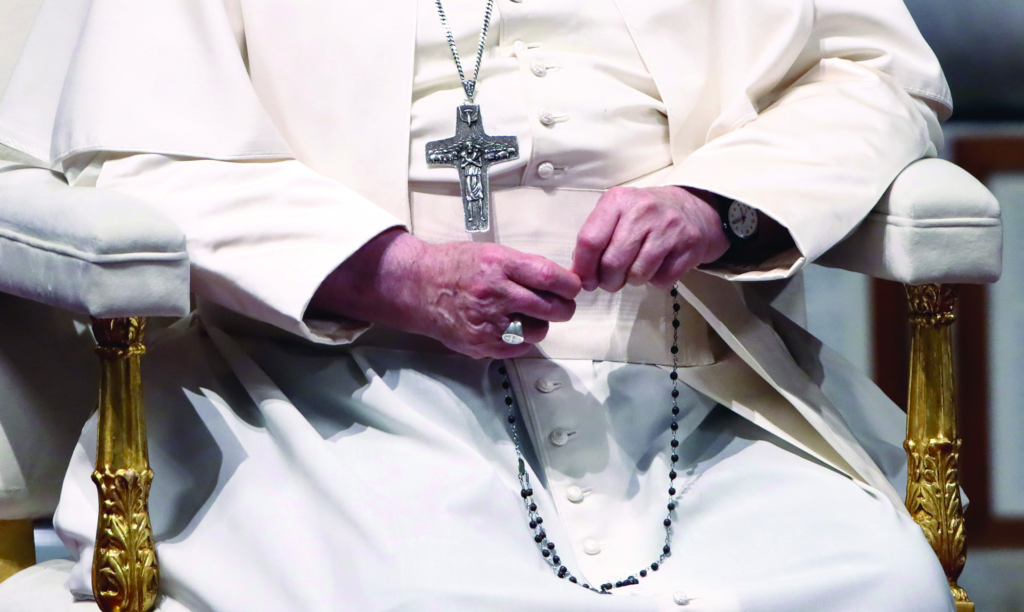
October 27, 2023, Vatican Basilica. Prayer for peace in the Holy Land, Ukraine and other parts of the world affected by war, with the recitation of the Holy Rosary presided over by Pope Francis. (Photo: Grzegorz Galazka)
Concerns of Homosexual Catholics
The “hot-button” topic which garnered the most attention in the lead-up to and during the synod was the Church’s attitude, teaching and pastoral practice regarding homosexuality.
Pope Francis himself invited high-profile “LGBTQ” advocates to the synod and accompanying events, including Jesuit Fr. James Martin, a synod delegate, and Sr. Jeannine Gramick, co-founder of pro-homosexuality New Ways Ministry, whom Pope Francis personally received at the Vatican during the synod. So it came as some surprise that the final synod report never actually mentioned “LGBT” Catholics.
The final report did say that “sometimes the anthropological categories we have developed are not sufficient to grasp the complexity of the elements emerging from experience or knowledge in the sciences and require refinement and further study. It is important to take the necessary time for this reflection and invest our best energies in it, without giving in to simplifying judgments that hurt people and the Body of the Church.”
People who feel marginalized or excluded from the Church because of their “marital situation, identity, and sexuality,” the final Synod document said, “ask to be heard and accompanied and that their dignity be defended.”
The document also said the synodal assembly is close to those who feel lonely because they have chosen to stay faithful to the Church’s teaching on marriage and sexual ethics, and Christians should listen to and accompany those who have made that commitment.
After the release of the report, Fr. James Martin told the National Catholic Reporter that he was “‘disappointed but not surprised’ by the result for LGBTQ Catholics.” He added: “There were widely diverging views on the topic. I wish, however, that some of those discussions, which were frank and open, had been captured in the final synthesis,” Martin stated.
What Comes Next?
Though the Synod on Synodality weighed in with relatively few concrete proposals, it did offer some.
One area in which it suggested action is in adapting decision-making procedures and structures to the new emphasis on more shared authority and increased size and number of synodal bodies in the Church.
Specifically, the report called for continental assemblies to be canonically recognized and for the implementation of “the exercise of synodality” at regional, national, and continental levels.
The synod assembly also proposed formally reconsidering the composition of the Synod of Bishops itself. It pointed to itself, saying its admittance of lay people, including women, was “generally welcomed,” while at the same time preserving its character as an episcopal assembly.
“The synodal process was and is a time of grace through which God is offering us the opportunity to experience a new culture of synodality, capable of guiding the life and mission of the Church,” the final Synod report said.
Nevertheless, “The question remains open,” the synod report conceded, “about the impact of [non-bishops’] presence as full members on the episcopal character of the assembly.”
The report suggested three options for the arrangement of future global synods: bishops-only, both bishops and non-bishops, or an assembly of non-bishops followed by an episcopal assembly.
“Bear Witness”
Urging synod participants to carry forward the synodal experience into their particular dioceses and areas of influence in the world, the synod report asked them to “bear witness” to what they had seen and heard there.
“After a month of work, now the Lord is calling us to return to our Churches to pass on to all of you the fruits of our work and to continue the journey together,” the synthesis document said.
“Our personal accounts will enrich this synthesis with the tone of lived experience, which no page can restore. We will thus be able to bear witness to how rich the moments of silence and listening, of sharing and prayer have been,” it added.
Cardinal Hollerich assured journalists that the next phase of the Synod on Synodality would bring its own new insights, beginning with a brand new Instrumentum Laboris, or working document, upon which the 2024 session of the synod would be based – and not directly on the report just issued.
“The process really starts at the end of the process,” he said.
Debate over homosexual blessings
The following text was part of a much longer October 28 Washington Post report on the Synod by reporters Anthony Faiola and Stefano Pitrelli
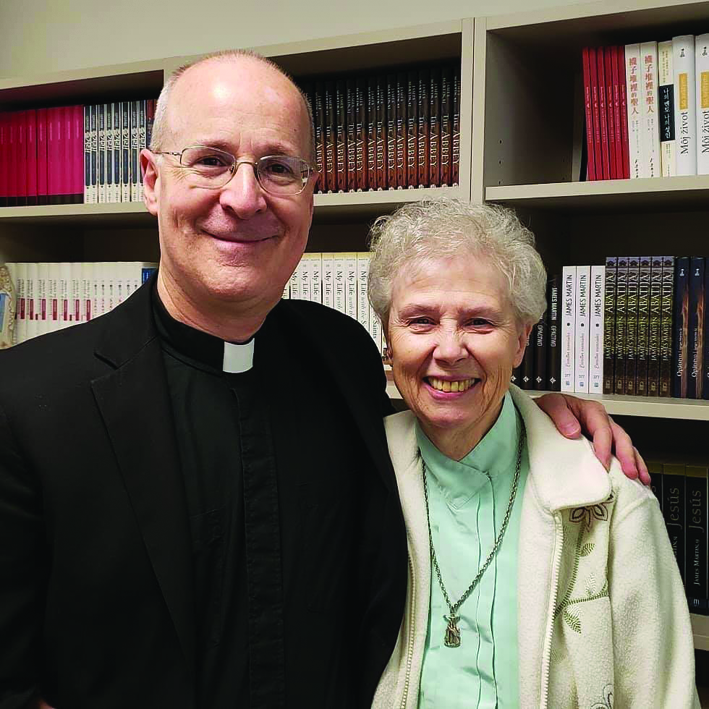
Several participants — speaking on the condition of anonymity due to Vatican requests that delegates keep the synod’s inner workings private — said no issue divided the consultative body more than the question of LGBTQ+ reception.
The same pope who made headlines in 2013 by saying, “who am I to judge?” when asked about gay priests, signaled an even wider door for the LGBTQ+ community ahead of and during the gathering. As the event approached, the pope issued a written response to concerned conservative bishops in which he affirmed that same-sex couples could receive Catholic blessings — but not the sacrament of marriage — on a case-by-case basis as determined by local church officials.
On Oct. 17, as the synod was in full swing, Francis symbolically welcomed Sister Jeannine Gramick to the Vatican. An American nun, Gramick was sanctioned in 1999 by then-Cardinal Joseph Ratzinger — the future Pope Benedict XVI — for her LGBTQ+ advocacy.
A week later, Francis met with a delegation from the Global Network of Rainbow Catholics, an LGBTQ+ group. Yet conservative bishops from Poland, Hungary, Nigeria, Ethiopia, Australia and elsewhere ardently rejected same-sex blessings, calling them tantamount to condoning “sin” and a “colonial” imposition from liberal Western Europeans. In public and private comments, they described homosexuality as “disgusting” and “unnatural.”
Officially, Catholic teachings state that homosexuality is “intrinsically immoral and contrary to the natural law.”
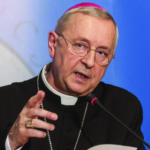 One delegate, Archbishop Stanisław Gądecki (photo) president of the Polish Bishop’s Conference, stood firmly by those teachings. He said in an answer to written questions from The Washington Post that he sometimes felt “the ‘non-Catholic’ voice was more audible than the ‘Catholic’ one” at the synod. He specifically called out the liberal German church — where priests are already blessing same-sex couples — for advocating reforms that “draw profusely from Protestant theology and the language of modern politics.”
One delegate, Archbishop Stanisław Gądecki (photo) president of the Polish Bishop’s Conference, stood firmly by those teachings. He said in an answer to written questions from The Washington Post that he sometimes felt “the ‘non-Catholic’ voice was more audible than the ‘Catholic’ one” at the synod. He specifically called out the liberal German church — where priests are already blessing same-sex couples — for advocating reforms that “draw profusely from Protestant theology and the language of modern politics.”
He said for LGBTQ+ people, a truthful “encounter with Christ” meant “a conversion, turning away from sin and adopting a lifestyle in accordance with the Gospel.”
“Benedictions, or blessings of homosexual unions, would mean that the Church approves of the lifestyle of homosexual partnerships (even if it does not equate them with marriages), which also means sex between same-sex couples,” he wrote. “What has always been defined as a sin in the Judeo-Christian tradition would now become something positive.”
Liberal delegates sought to strongly counter those arguments.
One delegate told a story of a woman who died by suicide after failing to obtain church absolution for being bisexual.
Another delegate — the Rev. James Martin, an American priest who ministers to the LGBTQ+ community and was handpicked as a delegate by Francis — told a story of a longtime same-sex couple in which a man had painstakingly nursed his cancer-stricken partner before he died. He asked the synod to consider if that were not a genuine sign of “love.” In an interview, Martin declined to confirm details of the synod debate, but said, “I’m disappointed not only that LGBTQ [people] were excised, but also that the discussions we had, which were passionate on both sides, were not reflected in the final document.”
“But I’m not surprised,” Martin said. “There was great resistance to the topic among many members.”

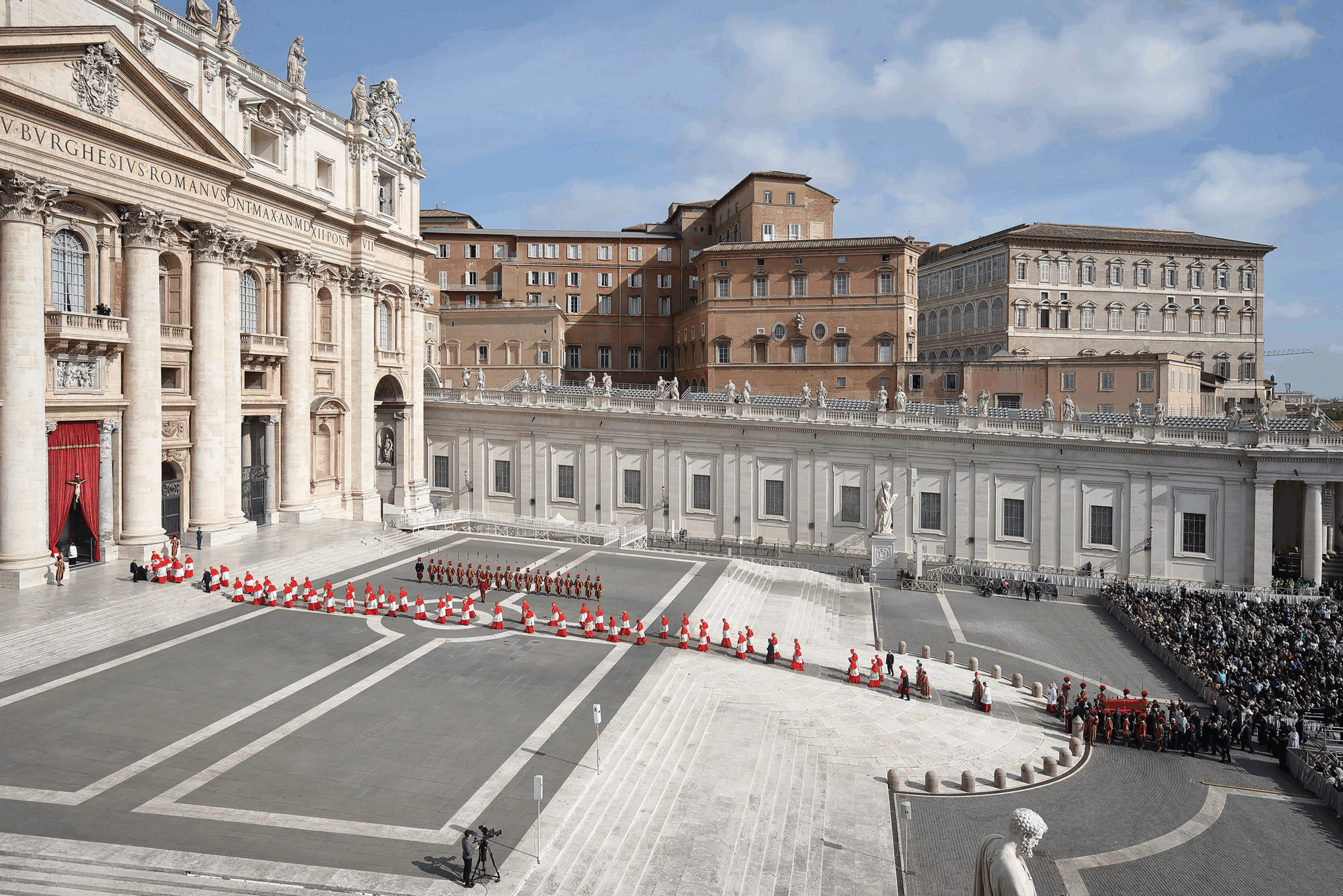




Facebook Comments